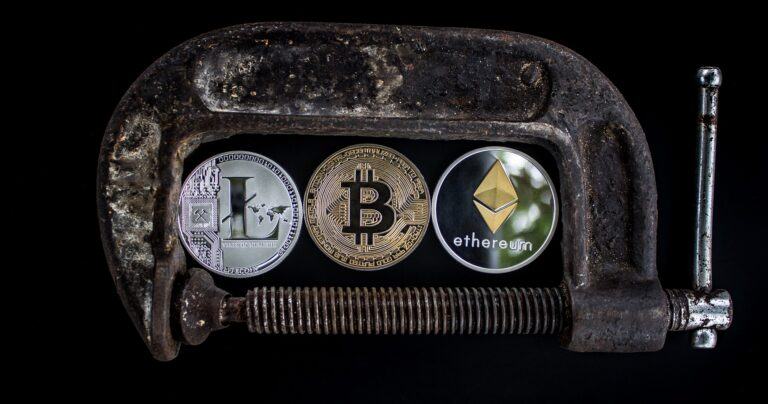Let’s say that you have $10,000 in your savings account and you’re considering to make an investment in the promising and disruptive world of cryptocurrencies. It’s in your best interest to do all the background research and see which project has the best potential to bring you great returns, while also retaining a long-term prospect on the market.
So you open CryptoCompare, take your time with the top 100 coins and tokens, read the opinions of industry experts, and still feel confused and overwhelmed by the amount of information you must process. After all you are probably not an expert in smart contracts, cryptography, game theory and economics. With stocks it’s so much easier, you have companies which have a history, a known board of directors, earnings reports and a product. But with cryptocurrencies you must retain a certain degree of faith in the project and believe that a roadmap will be completed or the final goal will someday be reached.
Nevertheless, if you want to avoid the speculation and tiresome analyses, you can just buy some of the old and legitimate coins which have their own blockchain, guarantee a greater security, and have already found utility in practical situations. You just can’t go wrong with the likes of Bitcoin, Litecoin, Ethereum, Bitcoin Cash, and even Ripple. Their qualities have been acknowledged by financial institutions and merchants, and they have successfully integrated into the contemporary financial system.
However, if you’re knowledgeable about projects like EOS, Cardano, IOTA, and NEM, but choose to ignore them in favour of coins with a proof of work (no pun intended) on the international markets, then you might just be a crypto conservative!
The main difference between a crypto conservative and a maximalist is that you believe and invest in more than one project. Bitcoin’s functionality is limited and despite its security and decentralisation an exciting future is possible with other fintech such as smart contracts and Dapps. Then there’s also the portfolio theory argument: when investing, it’s always a bad idea to put all of your eggs in one basket. Unless you’re a purist and think that only BTC deserves to exist on the market and serve as a currency, then it’s in your best interest to have a slice of each pie.
As a crypto conservative, you only believe in coins which exist on the market for quite some time and also receive recognition from big financial institutions. Has Börse Stuttgart announced that they would allow their customers to trade Bitcoin, Litecoin, Ethereum, and Ripple? Then these are the safest bets. CME and CBoE offer futures too, and it would probably be wise to trust their research. Why do they not care about IOTA or TRON? It’s because the coins themselves aren’t mature enough, haven’t proven themselves to be useful on the market, and the demand for them is purely speculative.
The role of the founders and the level of centralisation decides what a crypto conservative invests in. Lets look at Ripple (XRP), Bitcoin (BTC), Bitcoin Cash (BCH) and Litecoin (LTC)
In Ripple (XRP) and Bitcoin Cash (BCH) we observe a high degree of decisional centralization and the kind of concentration of ownership which makes the founders a little richer with each new price increase. Back in early 2018, Ripple co-founder Chris Larsen was declared the richest man in crypto due to the meteoric rise of the bank-oriented cryptocurrency, and both Roger Ver and Jihan Wu hold enough BTC and BCH to be able to manipulate the market at will either through trading or the media. Ethereum has a similar situation, but at least the network itself is more decentralized and allows separate projects to get built on top of the blockchain.
Sure, we do have the example of Satoshi Nakamoto, who owns 1.1 million BTC – about 6.4% of the current circulating supply of 17 million. But in the absence of any activity in his (or her) wallets, it’s safe to assume that the coins are lost and serve the purpose of increasing scarcity.
Perhaps that a good example is Charlie Lee, who sold all of his LTC back in December 2017 and basically renounced his whale status. It was a bold and controversial move which ensured that working on the Litecoin project would have a more noble purpose than enriching himself. So the age of the blockchain, combined with the distribution of the coins, would eventually give Litecoin more value for investors and reduce the reluctance of newcomers. However, the fact he sold at the top has drawn some criticism from the community.
Yet according to a CryptoGlobe report, Bitcoin is still the most decentralized in terms of ownership: the top 10.000 wallets own 55% of the supply. The data doesn’t look bad at all for the king of cryptos, as the percentages are 66 for BCH (though we must keep in mind that most owners got the coins for free after the fork), and 78 for LTC.
The further down the top 100 list you go the more questionable the centralisation becomes. Many rely on the governance of a hopefully benevolent dictator.
Could you imagine what TRON would look like if Justin Sun magically vanished and left the project in its current state? What about Verge, the problematic privacy coin that’s built an interesting cult of personality around Justin Sunerok? No crypto conservative would ever want to invest in projects whose long-term existence and sustainability are so fragile that the disappearance of the leader can obliterate everything. Remember when the Vitalik Buterin is dead hoax crashed Ethereum?
The hard answer is that to invest in projects outside the top 5 or so requires significant research and due diligence using no sources that may be compromised.
Crypto conservatives believe smaller but steady long-term gains are better than the quick buck one could make in the heyday of Bitconnect (which, by the way, collapsed and shut down). It’s about believing in the vision and technology, being more patient than impulsively speculative, and using sane arguments when supporting a project. When you take a look at the chart below its tempting to soley invest in ICOs. But you don’t want to be left holding the shitcoin when the music stops.

A crypto conservative wouldn’t support TRON just because he’s part of the delegated governance process and bought into the coin at the all-time high. Action or participation require genuine trust in the project, while the project itself must have proven itself on the market. If you support promising vaporware which delivers no functioning product and probably never will, then you don’t deserve to be a member of this club.
Having presented all of these arguments, maybe it’s your turn to take an introspective look at your portfolio and strategy, just to ask yourself: “Am I a crypto conservative?”.









